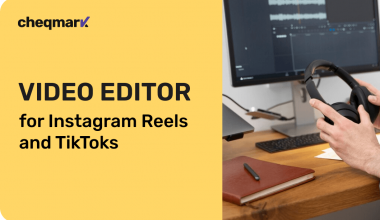Resumes are important when applying for a job. A good resume often helps land a good job, so special care and consideration must be given to crafting it.
Creating a standout resume when you have little to no professional experience can seem a bit tricky. However, a few pointers can help you in this regard as you’ll understand what’s the right approach. This article focuses on the tips and we’ll discuss them comprehensively so you can understand better.
Pointers for Creating a Standout Resume
The following are the things that you must keep in mind and do to make a compelling resume that will help you land your dream job.
- Create a Strong Resume Objective
A resume objective usually comes at the start of your resume and is a 1-2 liner overview of your professional goals. It can also include why you’re seeking a job and what you bring to the table for a corporation.
Since the resume objective is supposed to be kept short, you must try to convey more while saying less. To better understand how resume objectives work, here’s an example for a fresh graduate with no work experience.
“Motivated fresh graduate of business school looking for a full-time job in finance where I can use my expertise in market analytics to increase profitability for your company.”
It is worth mentioning that an AI summary generator can help with creating concise resume objectives. It uses NLP algorithms to condense the provided text automatically. So, you don’t have to worry about the length of your resume objective.
Emphasize Education and Relevant Coursework
Every resume must include a part that highlights your education. This is because it helps the employer determine if you’re the right fit for the job.
Considering this, you should make a dedicated section for listing your education. Mention your qualifications, including degrees, certifications, or relevant coursework. Besides this, you can add your academic achievements here as well. Any honors, awards, or notable projects can work great to showcase your competence.
Many experts also recommend adding your GPA to the education section. But only if it’s good (generally above 3.5). Education has to fill that void since you don’t have much experience.
Focus on Your Skills and Strengths
Education is one thing, but it’s really your skills that the employer is looking for. A section that focuses on your skills relevant to the job can go a long way in making a good impression.
Besides job-specific skills like coding and programming, you can mention communication, leadership, problem-solving, teamwork, or technical skills, which are valuable in any job. These skills are often highlighted on a job board, where employers look for candidates with a well-rounded skill set.
Additionally, you must use numbers or metrics to demonstrate your strengths. For example, instead of saying, “Led a team project,” you could say, “Led a team of 5 in successfully completing a project within budget and deadline.”
Please keep in mind that you are not supposed to lengthen this section too much, as doing so can lower the overall quality of your resume.
Use a Professional Format and Design
People make the grave mistake of using casual and funky formats and designs for their resumes. If you want yours to stand out, you have to make it as professional as possible.
Settle with one that’s appealing to the eyes but isn’t too overwhelming either. It should be easy to read and there must be no clutter. Remember, simple is the new smart.
Besides this, experts advise maintaining uniformity in font type and heading styles. Try sticking to professional fonts like Arial, Calibri, or Times New Roman. A size between 10-12 points for the body text and 14-16 points for section headers is recommended.
Use bullet points to list achievements and skills to make reading easier for the employer. And lastly, if you’re choosing a color for the background of your resume, opt for subtle accents like navy blue, dark gray, or burgundy. Avoid bright or neon colors.
Tailor Your Resume to Each Job
Take a close look at the job description and then sit down to craft a resume for it. To make your resume stand out, you have to tailor it to the job description.
Try to determine what keywords the employer has used in their job description and incorporate them in your resume carefully. Generally, they are like “customer service”, “data analysis”, “project management,” or specific software names.
When adding them, do remember that the keywords should look natural and not weirdly out of place. This will help your resume get noticed by applicant tracking systems.
Besides this, as we’ve mentioned above, all the skills and strengths that you talk about must be relevant to the job you’re applying for. To take this a step further, you can try to match the voice and tone to that of the job description. If it’s formal, keep your resume professional. If it’s more casual, you can be slightly more conversational.
These are the tips that will you craft a standout resume even if you have little to no professional experience. Before we bring this post to a close though, we would like to provide an example standout resume that follows the aforementioned guidelines and that you can use as a reference.


